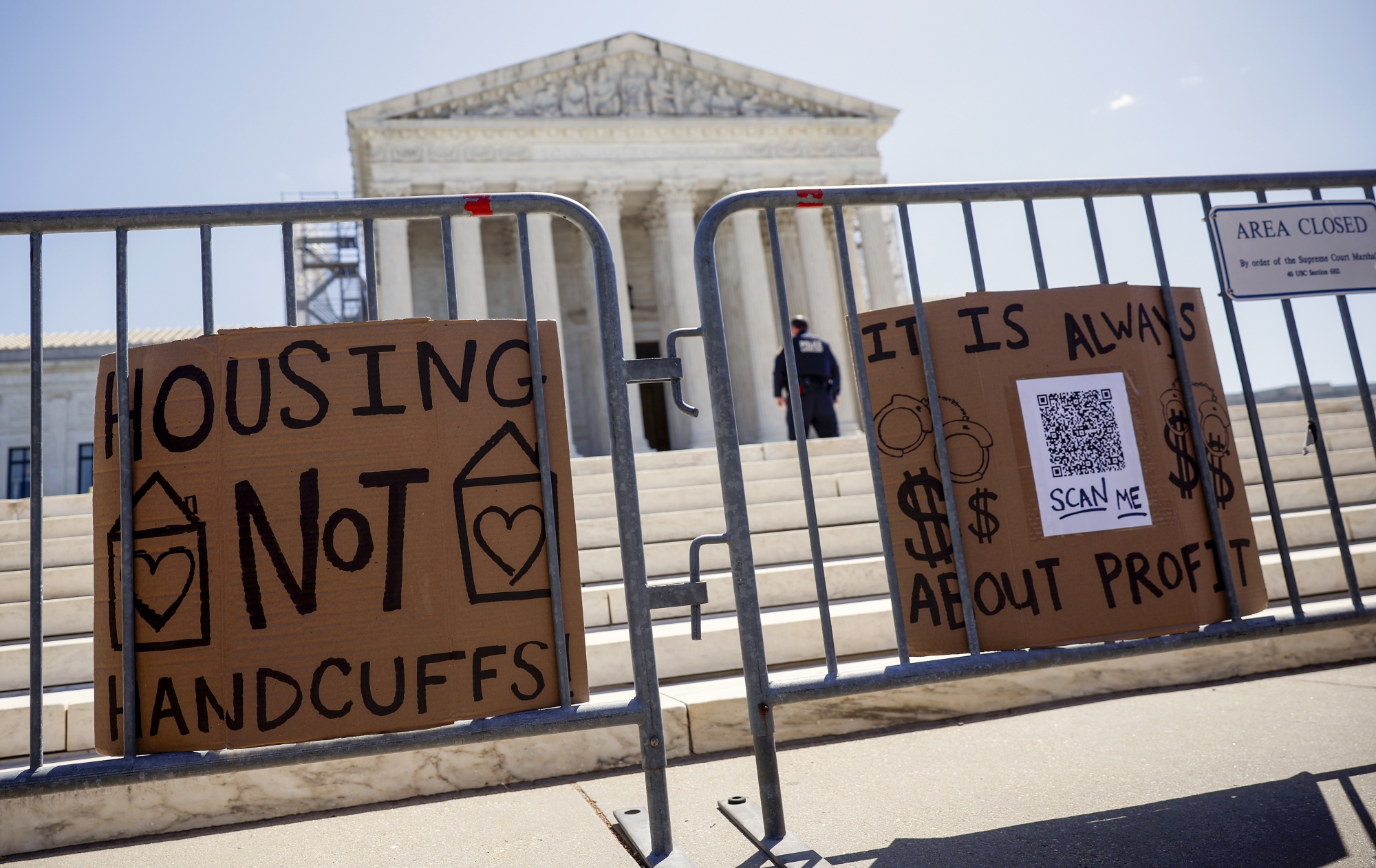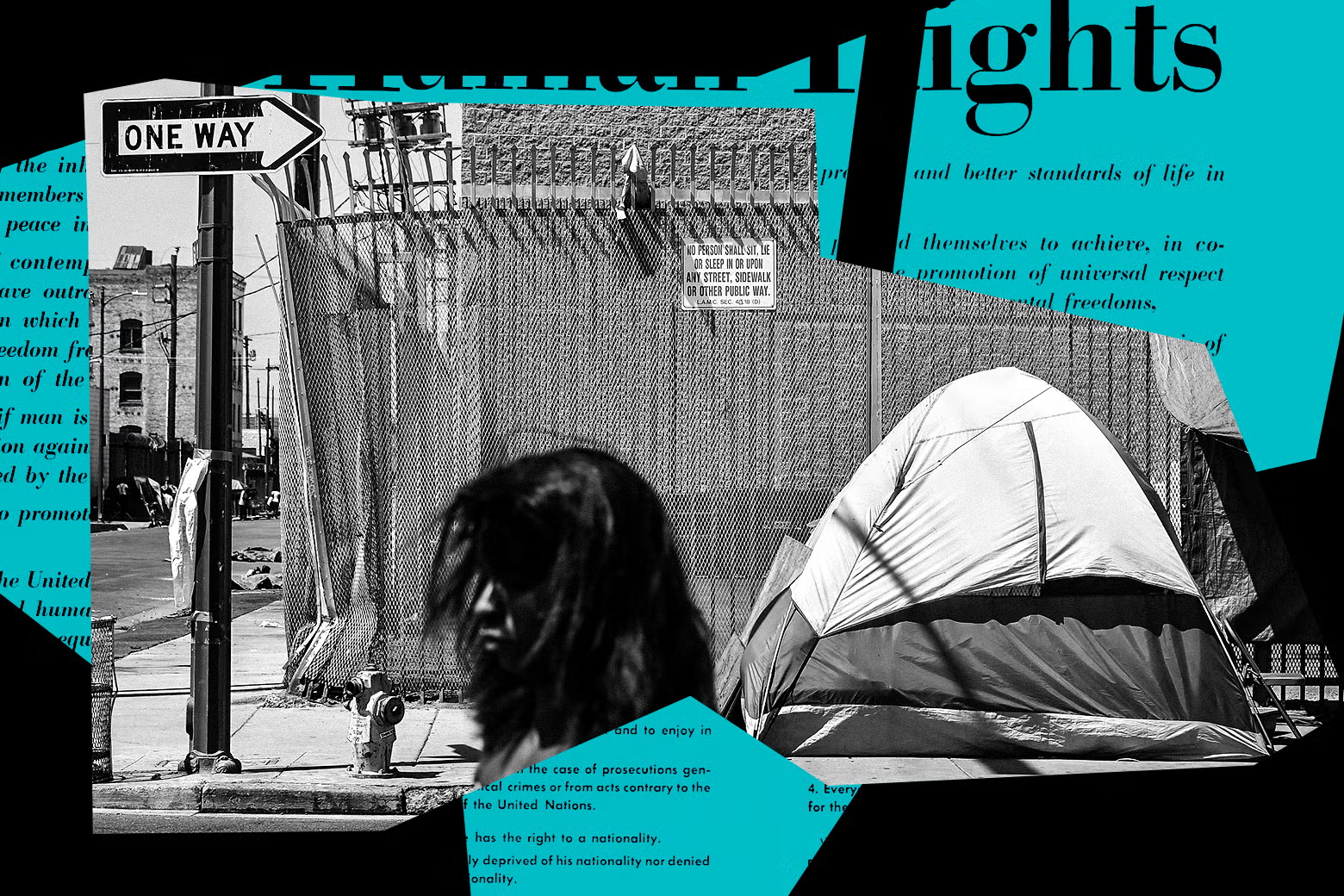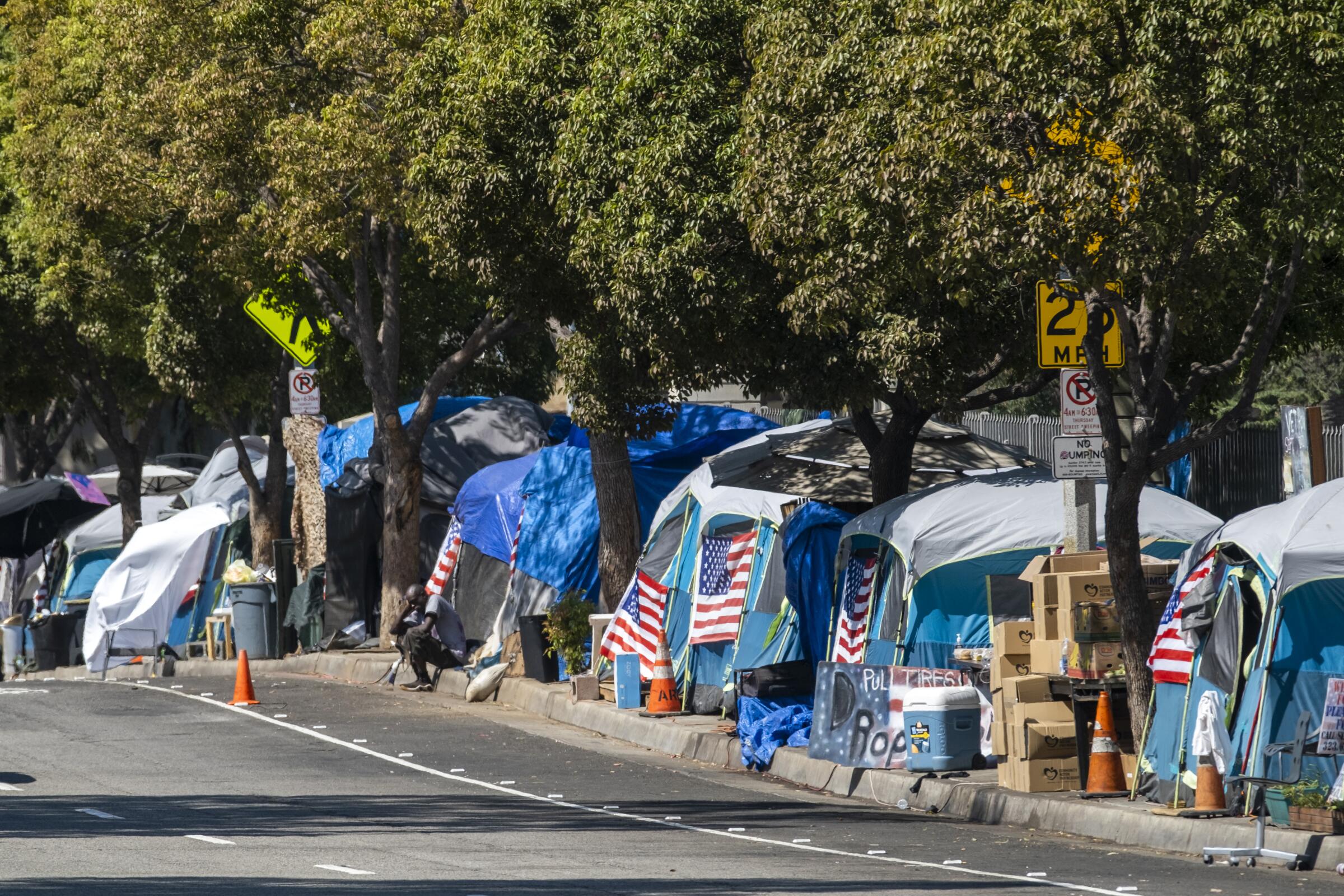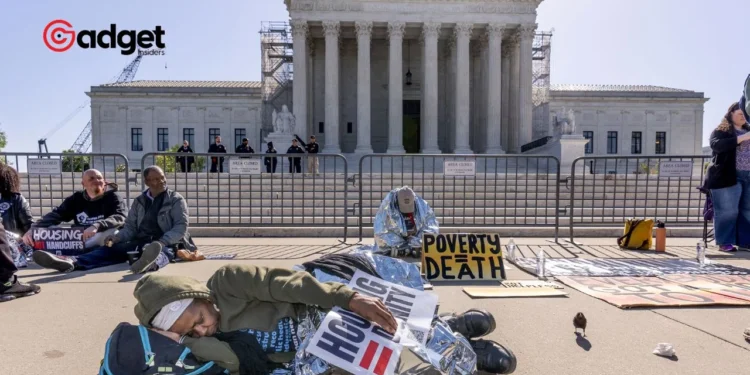The U.S. Supreme Court recently convened to deliberate over what could be deemed the most crucial legal confrontation concerning homelessness in recent decades. At the core of the proceedings is a contentious issue emanating from a small Oregon town, which has implemented fines of up to $300 for homeless individuals found setting up camps in public parks.
This case raises profound questions about the legality and humanity of criminalizing homelessness under the guise of city ordinances.

Supreme Court Scrutiny: Delving into the legality of penalizing homelessness
Legal Framework and Human Rights: An In-Depth Look into Homeless
The spotlight in this significant legal challenge shines on the ordinances of Grants Pass, Oregon, which prohibit camping in public spaces. Those who are opposed to these laws argue that they unfairly punish individuals for their position, which may constitute a violation of the Eighth Amendment’s provision prohibiting cruel and unusual punishment.
During the proceedings, Geoff Bennett and NewsHour Supreme Court analyst Marcia Coyle provided detailed insights into the justices’ viewpoints and the arguments presented by both sides. The central question revolves around whether these laws unfairly target people without any home who are lacking alternatives, and must resort to sleeping outdoors.

The Arguments on the Floor
According to attorney Ed Johnson, representing the homeless residents of Grants Pass, these laws not only fail to address the underlying issues of no home but exacerbate them by burdening individuals with criminal records.
This, in turn, makes it increasingly difficult for them to secure employment or housing. On the other side, Theane Evangelis, representing the city, argued that public camping poses significant safety and health risks, as evidenced by distressing incidents like overdoses in public spaces.

Justice Elena Kagan highlighted a poignant aspect of the debate by focusing on the mere act of sleeping and its classification as conduct.
She pointed out that for someone without access to private space, sleeping in public is an involuntary, biological necessity—akin to breathing. This argument draws attention to the stark realities faced by the people without any home and challenges the notion of penalizing such unavoidable human behaviors.
The Supreme Court is hearing a case literally today on whether it's legal to punish people who are unhoused for being homeless. It's not nothing to have the transit agency of the country's 3rd largest city say homelessness is not a crime as they answer a rider's genuine question. https://t.co/pcAN21cR79
— Katie Prout (@katie_prout) April 22, 2024
Judicial Perspectives and Broader Implications
The court’s discourse was heavily laden with hypotheticals, probing the fine line between status and conduct. Chief Justice John Roberts questioned the practical implications of available alternatives, such as nearby homeless shelters, and whether their existence justifies penal actions against those who choose not to—or cannot—utilize them.
Marcia Coyle noted that while the court seemed divided, the conservative justices appeared more inclined towards supporting city ordinances. This case, therefore, not only tackles the immediate legalities concerning Grants Pass but also sets a precedent that could influence how cities nationwide approach the issue of the citizens without any home.
A Society at a Crossroads
As the justices deliberate, the outcome of this case will likely resonate far beyond the borders of Grants Pass, affecting national policies on homelessness and city governance. It underscores a critical societal question: how to balance public interest and safety with compassion and fundamental human rights.
The decision, expected to be complex and nuanced, will undoubtedly shape the legal landscape concerning how cities engage with their most vulnerable populations.
As cities grapple with the growing crisis of people without any homes, the Supreme Court’s decision in this landmark case will be pivotal in defining the boundaries of law, humanity, and civic responsibility.










